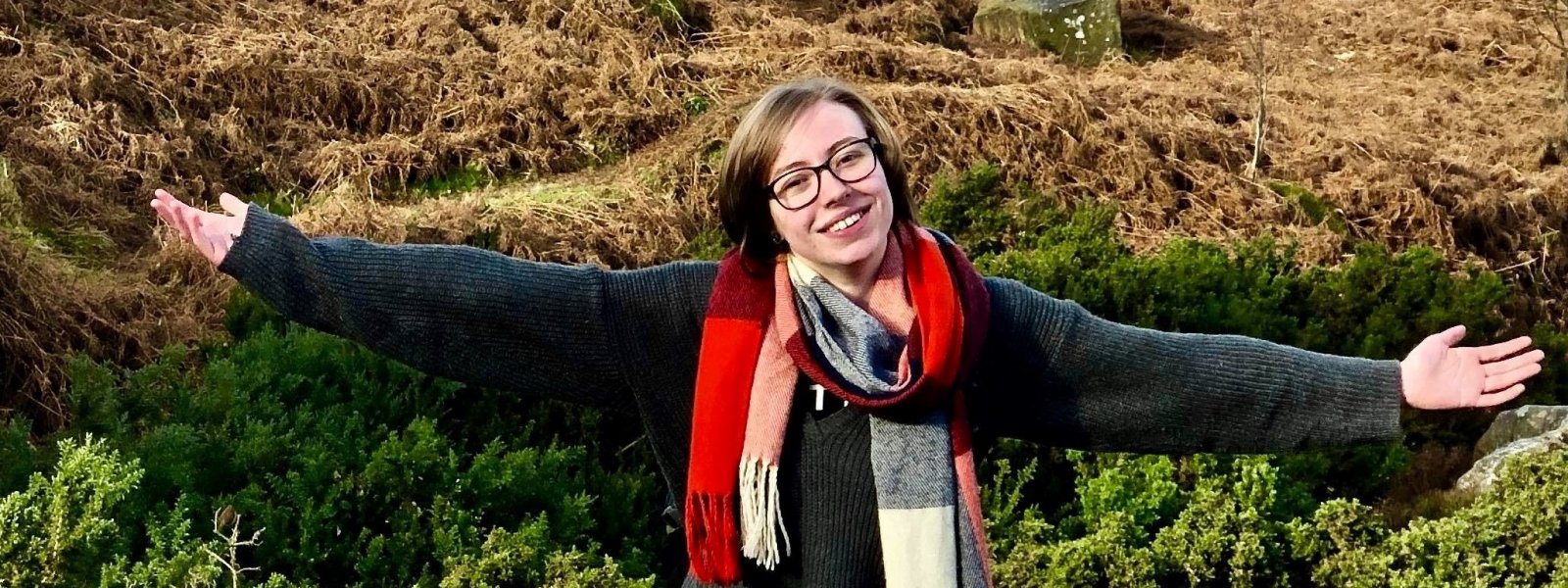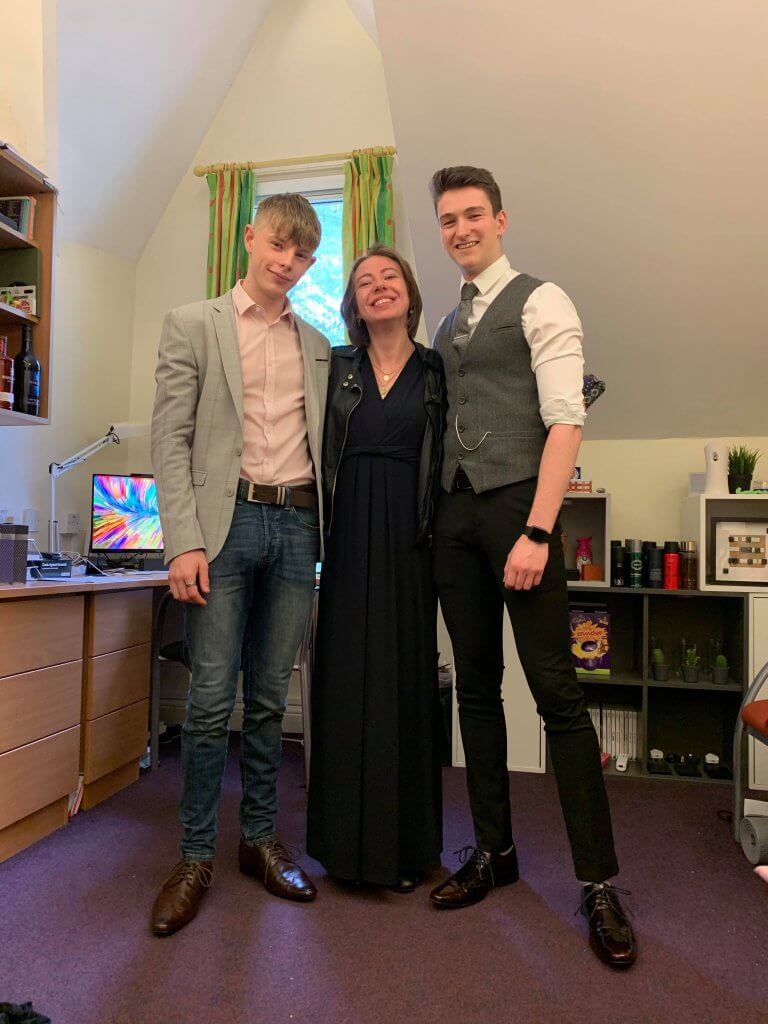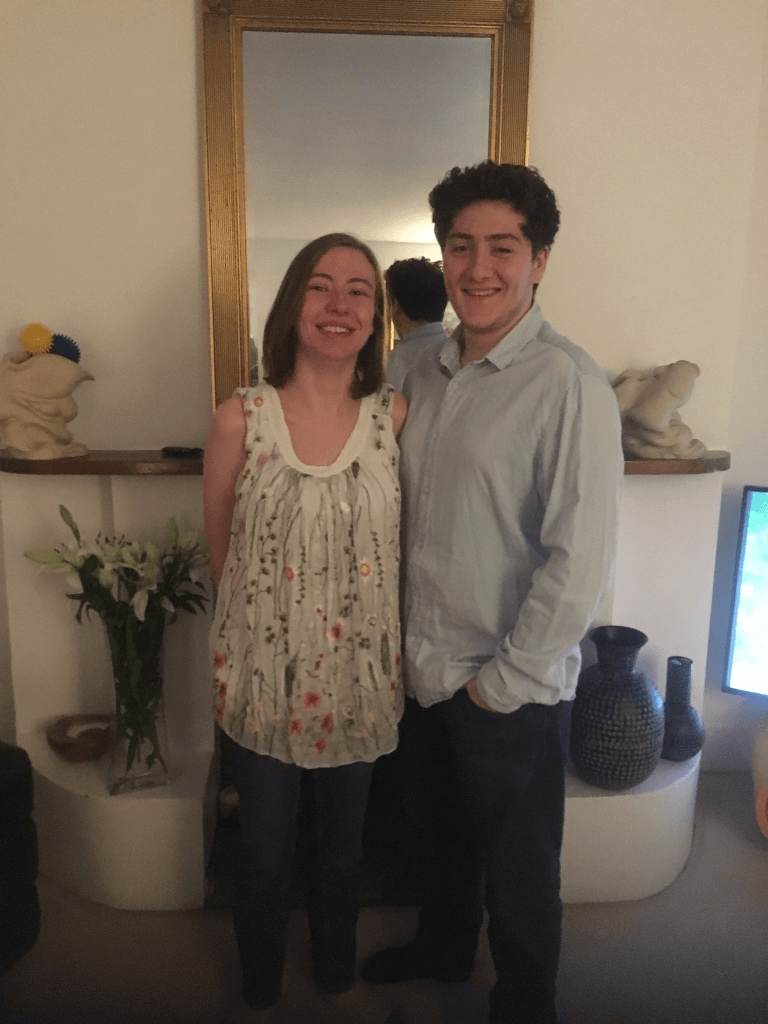What I learned from studying with PH
Emma Ferguson achieved a first-class degree in English Literature – and her time as a student taught her invaluable lessons about managing her PH too. Here, writing in June 2021, she reflects on the last three years as an undergraduate.
On my sixteenth birthday I received a diagnosis of idiopathic pulmonary arterial hypertension from a team at Great Ormond Street Hospital. I was already being treated for a congenital heart condition discovered when I was ten, but the two conditions were not viewed as related.
My PH has posed issues throughout my education due to symptoms like tiredness, my greater risk of infection and missed school for hospital appointments. When it came to applying to universities, I set criteria such as low air pollution levels and accommodation on campus to ensure I could manage my condition as best as possible. The University of Leeds came out on top and in October 2018 I began my studies there.
Adjusting to student life
The life of an English Literature undergraduate is a very unstructured thing. In my first year I had eight contact hours a week which was reduced to seven in my second year and became a whopping ten in my final year.
This structure suited managing my condition perfectly, as the rest of my time (when I was supposed to be completing independent study) was very flexible and allowed me to take rest when I needed it.
The necessity of eking out my student loan to cover my costs meant that I walked everywhere and by the end of my first year, I was probably the fittest I have ever been. The toughest weekly task for me was carrying my food shopping for the 25-minute walk back to my house, but this was still doable with rest breaks.
If I had my time again though, I would order my food online and have it delivered which is what I did this year while shielding.
My first year enhanced a lot of skills for me such as good time management. I learnt very early on that the pulling all-nighters routine favoured by many students when writing essays wasn’t possible for me. My condition meant that good planning and daily work was the best way to manage deadlines.
Societies such as the student newspaper also allowed me to write about my health and hidden disability while also helping me build a portfolio for my future career.
Shouldering the costs
My first year also taught me a lot about the additional costs shouldered by disabled people.
Throughout my degree I had out-patients’ appointments with my specialist and this sometimes fell in the holidays and sometimes during term time. This necessitated flying back to Belfast and catching up on missed work upon my return. The other costs associated with my PH were paying for prescriptions (something which doesn’t exist in Northern Ireland) and paying for other things like taxis to my GP’s office or food delivery when I was too unwell to get those things on foot.
While services like Student Finance’s Disabled Students’ Allowance (DSA) do exist, in my experience, they funded study aids like laptops and printers rather than subsidising travel costs or other medical expenses.
Other services such as the disability services team at my university were usually helpful in advocating for me and they produced a report on reasonable adjustments for me every semester – which included accommodations such as leniency if I had to miss seminars and lectures.
The challenges of my second year
My second year at university taught me a lot about how variable my PH can be. After a healthy first year, I didn’t sufficiently prepare for managing my condition in my second year.
Most students move into cheaper, private accommodation in their second and third years and I wanted to do likewise. It’s important to note that many universities like the University of Leeds do allow disabled students to retain their first-year accommodation for the duration of their degree if they apply to do so, and this is an option that in hindsight I should have taken.
Instead, I lived with friends in a flat a 25-minute walk away from campus. This walk, while not necessarily an issue on its own, when coupled with a series of unfortunate circumstances meant that I became quite ill.
The period of 2019-2020 in Leeds was extremely wet and the constant rain, coupled with the longer walk to campus, meant that I regularly had colds which stuck with me. In January 2020 I went under with a bad virus which stuck with me for five months.
Three courses of antibiotics and a steroid nasal spray later, I did recover but it was a long slog. The personal responsibility of cooking, shopping and generally looking after myself while still attending lectures and doing coursework meant that I never had a proper opportunity to stop and focus on getting better which probably prolonged my illness.
The lockdown measures in March came into place two weeks after my mum had demanded that I come home due to her fears about the virus preventing me from travelling home. I was very fortunate that I was able to come home and be looked after while finishing my second year.
Understanding my limits
My health issues have created in me a drive to do everything when I am well. This drive, however, can also prolong illness and create over-tiredness. After my healthy first year, where I had held down a part-time job alongside my studies and completed a sponsored run (at a walking pace) I had become overconfident about how much I could do.
For my second year I had signed up to do too much. These had been great opportunities and were doable when I was well but when I got sick, they became a burden that was very hard to shift. Heading into my third year, I shed a lot of responsibilities and limited the number of extracurricular activities I took on to prevent a repeat of my second year.
My final year was entirely online due to COVID-19. This presented new challenges but from a PH perspective the online working conditions were helpful. I had unfortunately signed for a flat for my final year when it was announced that teaching would take place online, but I mostly lived at home.
It has been interesting to see how the university plans to retain measures such as online teaching in the future and I’m pleased that this means more options for disabled students going forward. As I’ve begun to apply for jobs, I have also seen more remote positions being offered and flexible working options which I find encouraging.
Looking ahead
In July, I graduated from the University of Leeds with a first class (hons) degree in English Literature. It has been a long process, made tougher to navigate at times due to my PH, but also something that I have found very rewarding.
As I move onto the next step, I feel that navigating studying and getting through the pandemic have prepared me for the future and the issues that can and do arise from my condition.
The biggest takeaway that I have is that preparation and mindfulness of your limits are the most useful things you can do to manage PH in a full-time study environment.



















